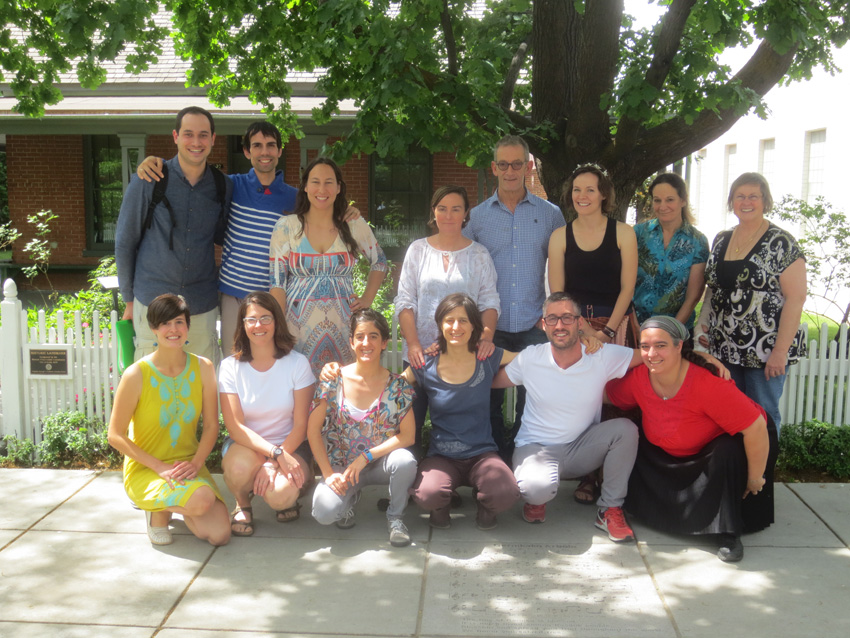Boise, Idaho. Boise became the site at the end of May of a meeting of Basque teachers throughout North America. On May 30 and 31 the annual teachers meeting was held followed by a Barnetegi, or intensive language course that most of the teachers participated in June 1-7 as part of the Euskara Munduan teacher training program.
According to organizers, teaching Basque in North American Basque clubs is progressing little by little, and finally the fruit of their work is becoming evident. “The process hasn’t been easy but little by little we can say that we are moving up. We still have a lot to do, but what we have already accomplished is notable,” Kinku Zinkunegi, HABE technician and coordinator of Euskara Munduan tells EuskalKultura.com.
“Basque has been taught for a few years in the US, Mexico, Montreal and Vancouver. The teachers are from various backgrounds and training, despite not being professionals, and thanks to them and their dedication, they have begun these courses. But it is a highly mobile group, so when the teacher moves, classes are cancelled more times than not,” he explains.
Teachers’ meeting
Teachers in the Basque clubs took classes in Boise on May 30 and 31. A dozen professors participated from San Francisco, Denver, Vancouver, Montreal, New York, Los Angeles and Boise. While there they received training on methodology on how to teach Basque as well as materials created for them by the Euskara Munduan program.
In addition, and in response to their request, they also had time to share experiences, as well as their daily teaching responsibilities. They also received in formation on practical resources to teach Basque especially for the beginning levels of Euskara Munduan.
Professors at this course were Itxaso Cayero, NABO Euskera Coordinator; Gurutzne Etxeberria, Basque teacher in Mexico who has taught at the UNAM for the last ten years, and Kinku Zinkunegi Euskara Munduan coordinator.
Extending little by little
Despite the good work done to date, the organizers from HABE and NABO are clear that there is still much to do. Attendance in Boise was high; the highest of the last few years, but there are still many clubs that don’t offer classes out of the more than fourty, in the US.
“It’s true that right now the attitude of those responsible for Euskera in the states if very good and thanks to them these courses are extending little by little in the states,” Zinkunegi says. “Not only extending, but also becoming more professional. But there is still a long road ahead, because not all of the clubs are at the same point, not in regards to materials, or their sensitivity to Euskera. This is now NABO’s challenge over the next few years, among others. The attitude of the Basque club is key.”
Barnetegi
The teacher training/meeting was then followed by a Barnetegi that took place from June 1-7. The goal of the Barnetegi is to improve the teachers’ training and their Euskera level as well. The group that began four years ago participated and it should be noted that of the 15 who began, 8 have achieved completion of the required training.
“Thanks to this, next year new groups will be put in place in various clubs. This supposes a big step for the diffusion of Euskera. Specifically the focus of this program, Euskara Munduan by HABE: training local teachers, reinforcing the man power in each club so that teaching Basque can be as autonomous as possible,” Zinkunegi concluded.






 Send to a friend
Send to a friend Add comment
Add comment








